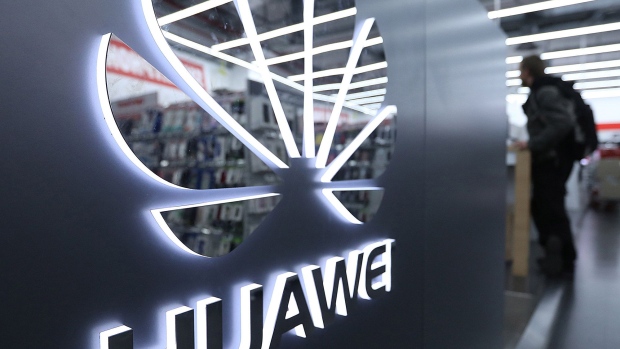Jun 24, 2020
Huawei Loses Main Singapore 5G Networks to Ericsson, Nokia
, Bloomberg News

(Bloomberg) -- Singapore’s biggest telecom operators chose Ericsson AB and Nokia Oyj as their main 5G network providers, leaving China’s Huawei Technologies Co. with less significant contracts in the city state.
Singapore Telecommunications Ltd. chose Ericsson while a group that includes StarHub Ltd. opted for Nokia after the city-state gave final approval for the rollout of nationwide 5G coverage in the country Wednesday. Huawei, which has been a point of contention in the tensions between the U.S. and China, still has a foothold in the market as a provider for TPG Telecom Pte’s smaller, local network system.
The final awards were issued to Singtel and a group formed by StarHub Ltd. and M1 Ltd. after they completed regulatory processes, including selection of preferred frequency spectrum lots and vendor partners, the Infocomm Media Development Authority said Wednesday. Provisional awards were made in April.
TPG Telecom Pte Ltd. is being allocated the remaining frequency spectrum in the millimeter wave band to roll out localized 5G networks, the authority said.
Singtel and the StarHub-M1 group plan to introduce a standalone 5G network starting from January 2021. The country aims to have 5G coverage for at least half of the nation by the end of 2022 and the entire island by 2025. The plan sets up Singapore to join countries in the region such as China and South Korea, which have begun to offer commercial 5G services.
The rollout is coming at a time when measures to curb the coronavirus have forced people around the world to stay and work from home, testing digital services and connectivity like never before. The technology is crucial for applications from autonomous driving to remote surgery. The announcement is also just a day after general elections were declared for July 10.
Ericsson, Nokia
In a separate statement, Singtel said it selected Ericsson “to commence a period of negotiation to provide the 5G SA Core, RAN and mmWave network, with a view to finalising the contractual terms as soon as practicable.”
StarHub, which received spectrum rights jointly with M1, said the preferred 5G technology partner, subject to final contract, is Nokia for the 5G radio access network. Nokia is also the preferred technology supplier for StarHub’s 5G core and mmWave networks. The Singapore company is exploring other network elements with Nokia, Huawei Technologies Co., and ZTE Corp., it said.
TPG Telecom said it’s an active member of the Telecom Infra Project and “will leverage the extensive OpenRAN vendor community along with Huawei’s advanced network equipment” for the implementation of 5G services.
U.S., China
The proposal process “did not exclude any vendor,” S. Iswaran, Minister for Communications and Information, said at a briefing Wednesday. “The particular emphasis was on security, resilience, and performance.”
The decision on providers comes amid worsening tensions between the U.S. and China. The U.S. administration has banned Huawei from its market for telecom equipment, as part of an effort to curb its presence in 5G networks globally.
Singapore has close economic and political ties with the U.S. and China, and last year indicated it would let its telco companies decide for themselves on suppliers. Prime Minister Lee Hsien Loong said earlier this year it hadn’t banned Huawei, but would evaluate it based on operational requirements.
(Updates to add more context on Huawei Technologies Co. in first two paragraphs)
©2020 Bloomberg L.P.





